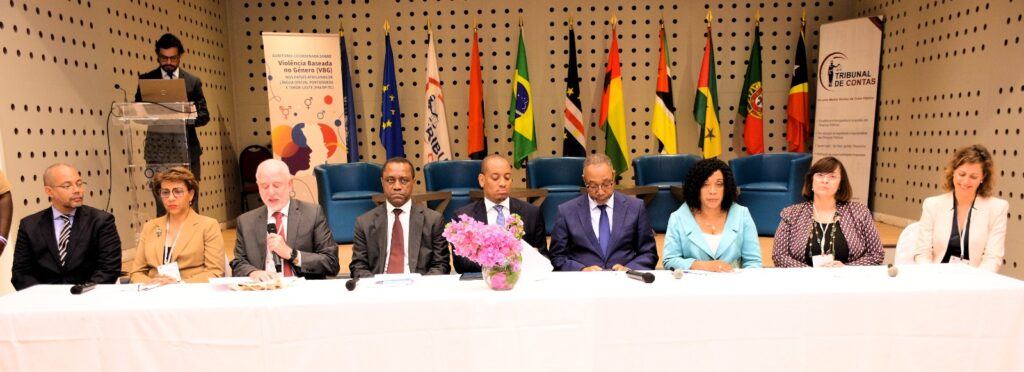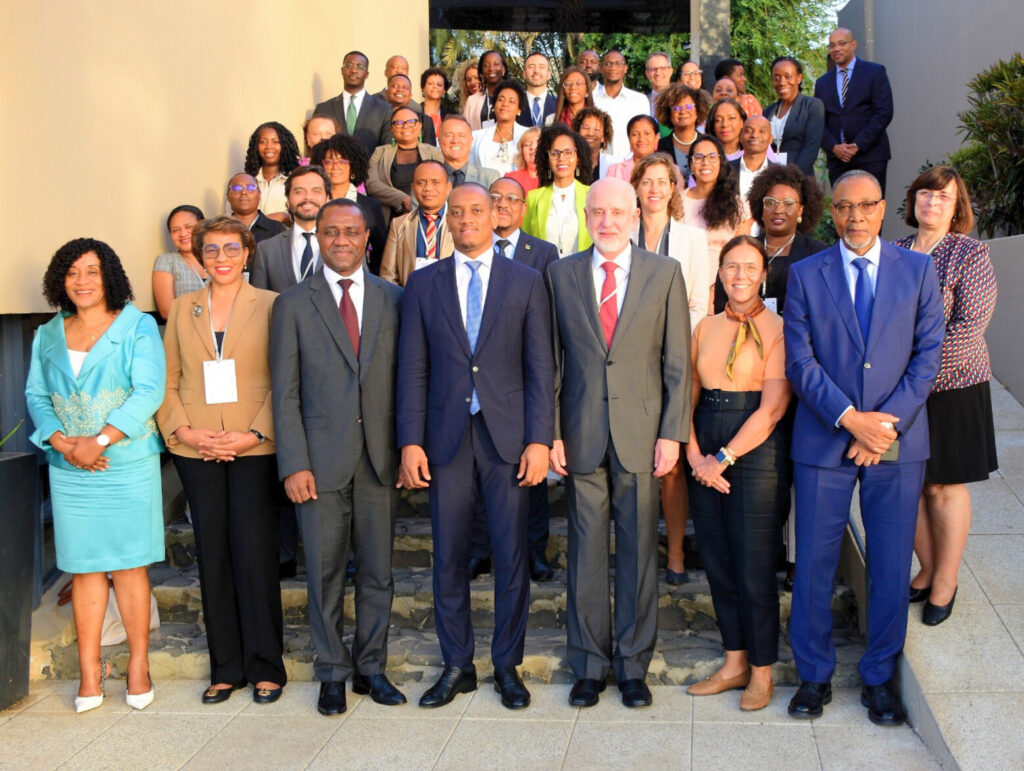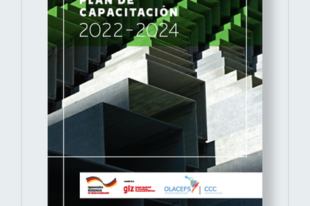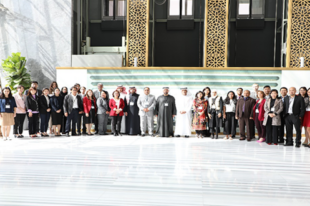Strengthening the Fight Against Gender-Based Violence in PALOP-TL through Coordinated Auditing

Author: Osvaldo Rudloff Pulgar
The Organization of Supreme Audit Institutions of Portuguese-speaking Countries (OISC-CPLP), with the support of the European Union-Funded United Nations Development Programme (UNDP) Multicountry Public Financial Management (Pro PALOP-TL), in collaboration with the Good Financial Governance Programme in Mozambique of the Deutsche Gesellschaft für Internationale Zusammenarbeit GmbH, (GIZ), successfully launched the Coordinated Performance Audit on Gender-Based Violence (CAGBV) on December 2, 2024. Hosted by the Tribunal de Contas de Cabo Verde, the international seminar marked a significant milestone in the collective efforts of Portuguese-speaking Countries: Angola, Cape Verde, Guinea-Bissau, Mozambique, São Tomé and Príncipe, and Timor-Leste (PALOP-TL) Supreme Audit Institutions to address the pervasive issue of gender-based violence.

The CAGBV aims to strengthen the capacity of SAIs to promote gender equality and empower women by conducting coordinated audits on gender based violence. Recognizing the alarming rates of gender based violence in the region, as highlighted by the World Bank, this initiative is a crucial step towards building more just and equitable societies. The audit will not only inform policymaking but also serve as a valuable resource for civil society organizations working to combat gender based violence.
Following the launch event, the audit teams participated in a four-day training course with the objective of strengthening their knowledge and skills. The event addressed two fundamental axes: awareness on gender issues and the deepening of audit procedures.
The event’s program on gender issues unfolded across several thematic panels. It began with a comprehensive look at progress in respecting women’s rights, providing a global and African perspective on gender equality, and noting both successes and remaining obstacles. The program then shifted to a discussion of the impacts and effects of gender-based violence, highlighting the problem’s complexity and the call for coordinated action, with attention to the specific needs of vulnerable populations. Discussions on gender-responsive budgeting followed, emphasizing its role in improving women’s lives and the importance of integrating gender considerations throughout the budget cycle. Finally, the event concluded with a panel dedicated to the institutional reforms necessary for promoting gender equality in Supreme Audit Institutions. In addition, the training provided practical guidance for conducting the audit, including the development of work plans, data collection and analysis, and the preparation of reports. Participants also had access to specific tools and methodologies for evaluating public policies related to gender-based violence.

It is important to emphasize that to complement the theory, several practical activities were carried out, such as analysis of real cases on gender, debates and group discussions to discuss relevant topics, such as the importance of civil society participation in audit processes, the challenges of implementing public policies with a gender perspective and good practices in gender auditing. The combination of theory and practice in the ACVBG training was fundamental to ensure that the teams acquired the necessary skills to conduct high-quality gender audits.
The CAGBV, spanning from last quarter of 2024 and the first quarter of 2026, is structured into five phases: capacity building, planning, execution, consolidation, and dissemination of results. The final reports, both national and consolidated, will provide evidence-based insights to inform policy and programming.
Through this coordinated effort, PALOP-TL SAIs are demonstrating their commitment to promoting gender equality and accountability. The CAGBV is expected to yield valuable findings that will contribute to the development of effective policies and programs to address gender based violence among Portuguese-speaking Countries.





